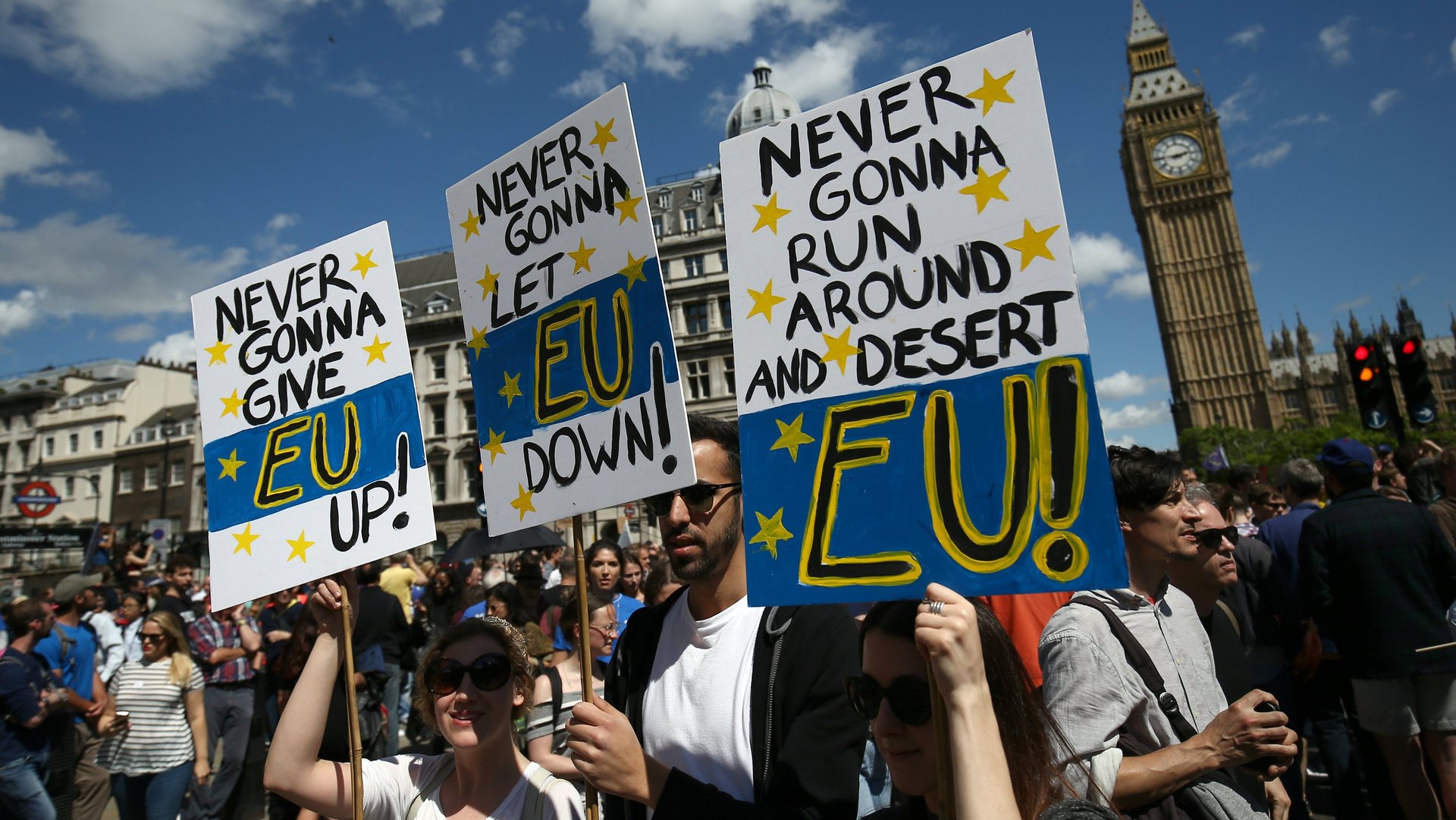After Brexit, what next for the three million EU citizens living in the UK?
As Britain steps out of European Union, there is a question hanging over the three million EU citizens living in the UK: “Now what?”


As Britain steps out of European Union, there is a question hanging over the three million EU citizens living in the UK: “Now what?”
Having failed to do so before the referendum, the government is now under pressure to guarantee the rights of EU nationals in the country. Prime minister David Cameron said there would be “no immediate change” to their status on announcing his resignation, but his potential successor, Theresa May, has not offered the same assurances. She has said that their future—as well as that of Brits living in other EU member states—should be part of exit negotiations. Her rival, Andrea Leadsom, said these citizens were not “bargaining chips.”
The current post-referendum delay is ”unfortunate,” says Sunder Katwala, director of identity and integration think-tank British Future. “The government put the campaign tactics of saying ‘nobody could know anything about Brexit’ over its good governance responsibilities to prepare for both possible [referendum] outcomes.”
On this issue, both sides of the Brexit war have been united. Leave and remain campaigners agreed that, whatever the referendum outcome, EU nationals should retain their right to remain in the UK.
The EU allows for free movement of citizens across its member states. Where the UK will now stand on these rules—and any reciprocal arrangements it makes with other EU nations—is one of the many thorny issues to be thrashed out during exit talks.
The UK might adopt a Norwegian-style model, whereby it has access to the European single market and continues to allow for free movement.
The alternative would be a “massive logistical exercise,” says Colin Yeo, a barrister specializing in immigration law.
The UK would “need to legislate to somehow convert the status of the EU nationals and their family members currently living in the UK, many of whom do not currently have residence documents because they are not needed in EU law,” Yeo says. These citizens would likely “need to apply for a new status or at least register in some way.”
Future changes to free movement rules are likely, says Katwala, but they should apply to new arrivals, not those already in the UK. “That distinction is the only principled, practicable or legally defensible approach to the issue.”
It’s also unclear, as pointed out by Sionaidh Douglas-Scott, a professor of law at Queen Mary, University of London, whether these current free movement rights will be legally recognized as “acquired,” and therefore protected.
Citing the UN’s Vienna Convention on the Law of Treaties, the leave campaign had argued that EU nationals’ existing rights would be protected in the event of a Brexit. For Douglas-Scott, this is a shaky argument: “the reference to ‘the parties’ in Article 70 is a reference to the parties to the treaty—i.e. States. Article 70 does not directly address individual rights,” she notes.
For Katwala, most of the UK wants to tell EU nationals “this is your home and you are welcome here. What sort of country would we be if we could not say that?”